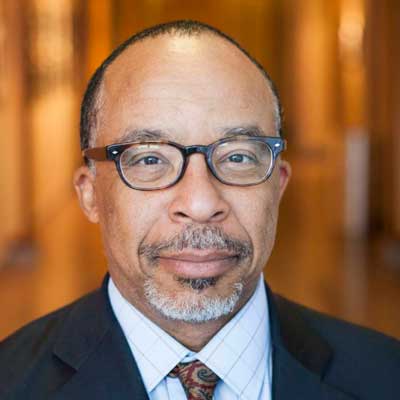Researchers are teaming up across the globe to find ways to address a major care gap for children with sickle cell anemia. For children living in high-income countries, treatment typically consists of regular blood transfusion therapy to decrease the likelihood of strokes. However, regular blood transfusion therapy is not feasible for children living in low- and middle-income countries.
“Childhood stroke is a major public health challenge but is particularly devastating in Africa, where most of the children with sickle cell anemia are born,” said Michael DeBaun, M.D., director of the Vanderbilt-Meharry Center for Excellence in Sickle Cell Disease. “Approximately 10 percent of the children with sickle cell anemia and abnormal transcranial Doppler measurements will have strokes in a year if not treated with regular blood transfusions.”
Focus on Nigeria
DeBaun is the principal investigator of the Stroke Prevention in Nigeria (SPIN) trial designed to determine whether an oral medication that is standard therapy for adults in the U.S. might also be used for primary stroke prevention in at-risk children.
DeBaun and colleagues from Aminu Kano Teaching Hospital and Friends in Global Health-Nigeria tested whether moderate fixed doses (20 mg/kg/day) of hydroxyurea, a myelosuppressive agent that reduces the frequency of acute painful sickle cell episodes, would be feasible as a stroke prevention measure in Nigeria, the country with the world’s largest population of people with sickle cell anemia. Approximately 150,000 Nigerian children are born with the disease each year, DeBaun said.
Final results of the SPIN Trial were presented during the American Society of Hematology Annual Meeting and Exposition in Orlando, Florida.
Lower Stroke Risk, Fewer Deaths
A total of 29 children with sickle cell anemia (median age: 7 years) were treated with hydroxyurea for primary stroke prevention, and 206 children (median age 8.2 years) were in the comparison group. The median time on therapy was 4.9 years. No deaths occurred in the treatment group. Sixty-six percent of treated children dropped their transcranial Doppler measurements from abnormal to normal, and no child had toxicity associated with hydroxyurea.
The results support initial treatment with fixed moderate dose hydroxyurea to prevent strokes in children with sickle cell disease who have abnormal TCD measurements.
“Similar to children with sickle cell anemia in high-income countries, stroke prevention is now a reality for children living in Africa.”
“Up until now, the only strategy to prevent the devastating complication of strokes in children was initial monthly blood transfusion therapy, typically available only in high-income countries,” DeBaun said. “As a result of this extended feasibility trial, we now have clear evidence that similar to children with sickle cell anemia in high-income countries, stroke prevention is now a reality for children living in Africa.”
Hydroxyurea is a practical alternative to transfusion, DeBaun said. “Instead of requiring immediate monthly blood transfusions for children at high risk for developing a stroke, initial treatment with hydroxyurea, taken by mouth once a day, produced in Nigeria and at a low cost ($0.13 per day), can prevent strokes in children with sickle cell anemia.”






